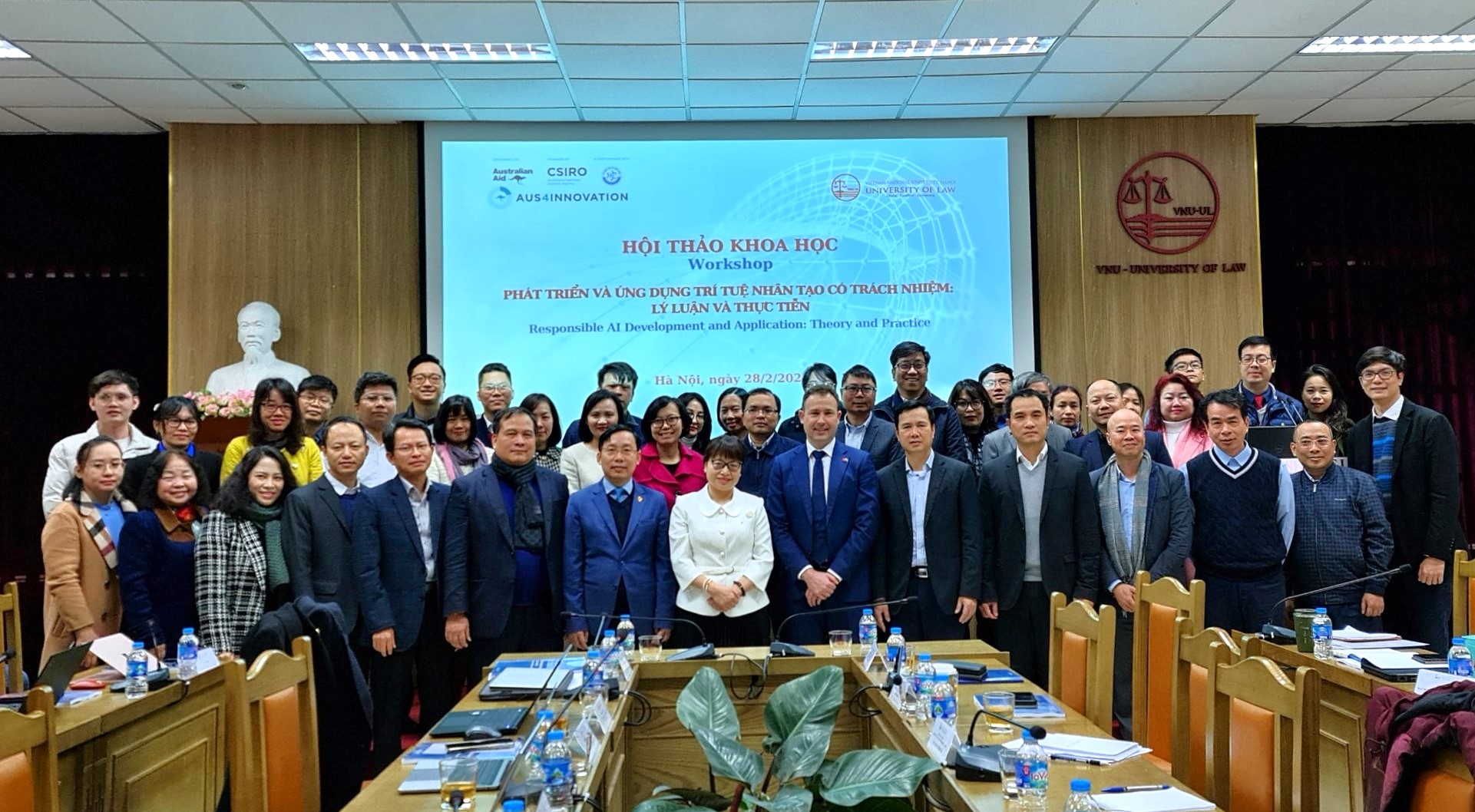Responsible Artificial Intelligence (Responsible AI) has become a key topic in numerous discussions on the development and application of this technology. According to Mr. Nguyễn Quang Đồng, Director of the Institute for Policy Studies and Media Development (IPS), Responsible AI involves identifying and mitigating risks posed by AI in diverse fields like education, labor, and environmental management. Addressing these risks effectively requires an integrated approach leveraging various solutions.

Participants of the scientific workshop "Developing and Applying Responsible Artificial Intelligence: Theory and Practice" posed for a commemorative photo.
Regarding policies to manage and mitigate AI risks, Mr. Đồng emphasized the need for Vietnam to adopt a policy approach tailored to its developmental context. He suggested that Vietnam consider utilizing "flexible" policy tools such as codes of conduct or technological standards rather than enacting "rigid" legal regulations.
Codes of conduct and technological standards can simultaneously foster innovation and establish best practices to minimize risks. On the other hand, rigid regulations might impose burdens on businesses and yield limited effectiveness, especially when regulatory authorities lack sufficient capacity to oversee technological compliance.
---
On the morning of February 28, 2024, Mr. Nguyễn Quang Đồng contributed his insights at the workshop "Developing and Applying Responsible Artificial Intelligence: Theory and Practice," organized by the School of Law, Vietnam National University, Hanoi. The workshop aimed to support the development of a framework of principles and guidelines for fostering Responsible AI in Vietnam, enhancing policy dialogues with policymakers, the business community, academics, and other stakeholders.


.png)

